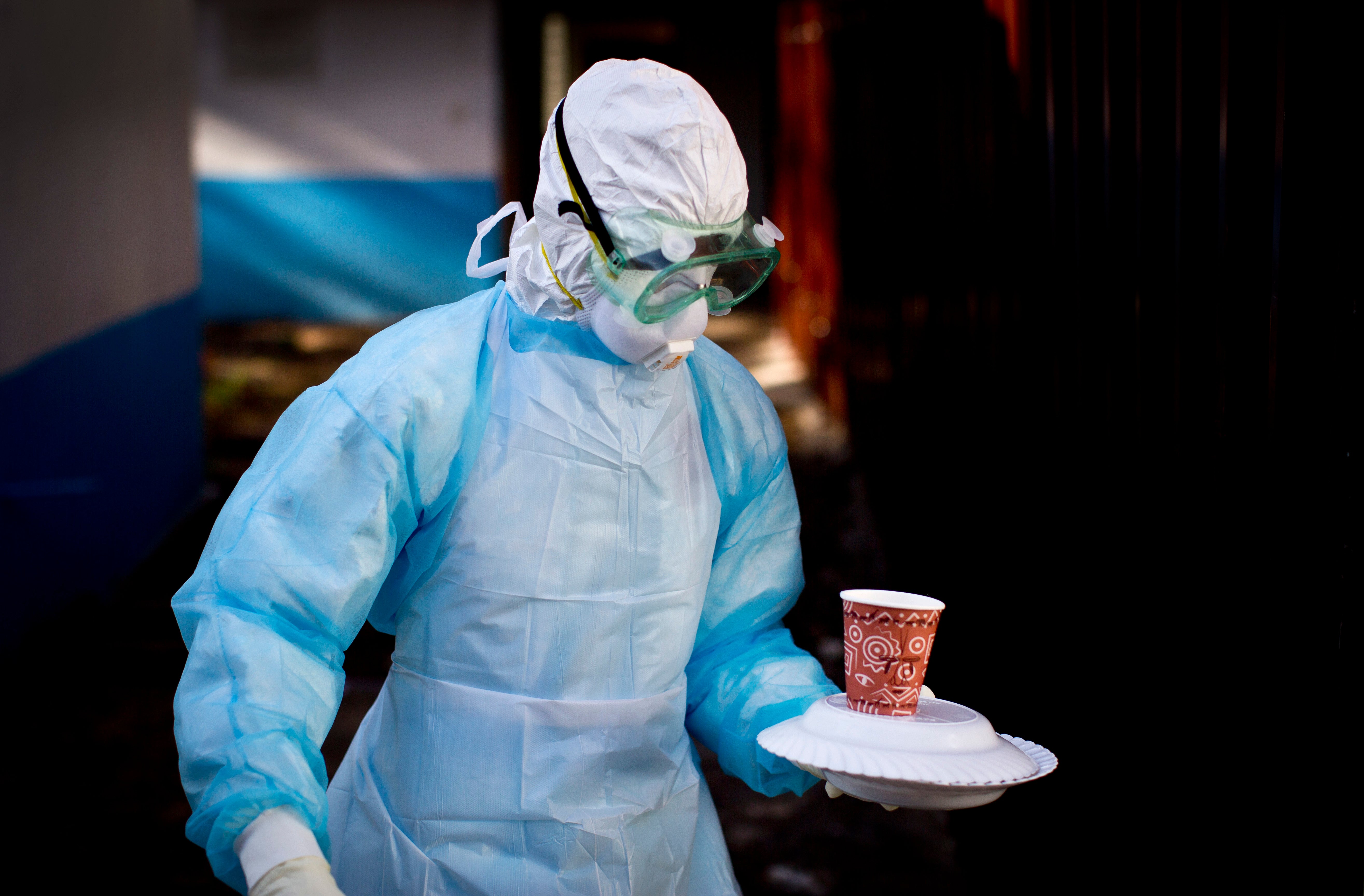Rwanda to start virus study for ‘deadly’ Marburg virus as death toll rises to 12
Rwandan health authorities will begin a vaccine study against the Marburg hemorrhagic fever as the East African country tries to stop the spread of an outbreak that has killed 12 people

Rwandan health authorities will begin a vaccine study against the Marburg hemorrhagic fever, officials said Sunday, as the East African country tries to stop the spread of an outbreak that has killed 12 people.
Rwanda, which received 700 doses of a vaccine under trial from the US-based Sabin Vaccine Institute on Saturday, will target health workers and emergency responders as well as individuals who have been in contact with confirmed cases, according to the Health Ministry.
Health Minister Sabin Nsanzimana told reporters Sunday that the Rwanda Biomedical Centre had reviewed the vaccine shipment.
There is no authorized vaccine or treatment for Marburg.
Like Ebola, the Marburg virus is believed to originate in fruit bats and spreads between people through close contact with the bodily fluids of infected individuals or with surfaces, such as contaminated bed sheets. Without treatment, Marburg can be fatal in up to 88% of people who fall ill with the disease.
In a statement, Sabin Vaccine Institute said it had “entered into a clinical trial agreement with the Rwanda Biomedical Centre, the trial sponsor, to provide investigational doses" for the study.
The Rwandan government said there were 46 confirmed cases, with 29 of them in isolation. Health authorities have identified at least 400 people who came into contact with confirmed cases of the virus.
Rwanda declared an outbreak of Marburg on Sept. 27 and reported six deaths a day later. Authorities said at the time that the first cases had been found among patients in health facilities. There is still no confirmation of the source of the outbreak.
Symptoms include fever, muscle pains, diarrhea, vomiting and, in some cases, death through extreme blood loss.
In Rwanda, most of the sick are health workers in six out of the country's 30 districts. Some patients live in districts bordering Congo, Burundi, Uganda and Tanzania, according to the World Health Organization.
Rwandans have been urged to avoid physical contact to help curb the spread. Strict measures include the suspension of school and hospital visits as well as a restriction on the number of those who can attend funerals for Marburg victims. Home vigils aren’t allowed in the event a death is linked to Marburg.
The US Embassy in Kigali has urged its staff to work remotely and avoid visiting offices.
Marburg outbreaks and individual cases have in the past been recorded in Tanzania, Equatorial Guinea, Angola, Congo, Kenya, South Africa, Uganda and Ghana, according to WHO.
The virus was first identified in 1967, after it caused simultaneous outbreaks of disease in laboratories in Marburg, Germany and Belgrade, Serbia. Seven people died after being exposed to the virus while conducting research on monkeys.



Bookmark popover
Removed from bookmarks